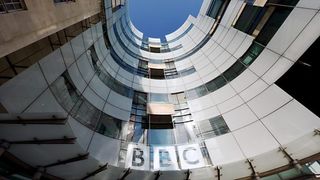BBC says TV licence fee could be replaced by broadband levy
BBC wants licence fee to remain in the medium term

The BBC has suggested a levy on broadband subscriptions could replace the licence fee as a long-term funding model.
Ministers are currently holding a consultation on whether the non-payment of the TV licence should be decriminalised. It has been suggested that the offence should become a civil matter instead.
The BBC has said the current method of funding, enforced by magistrates courts, is its preferred option for the medium term. It warns that the creation of a civil-based system would cost an initial £300 million, would double evasion rates to 10 per cent.
- BBC delays over-75 licence fees due to coronavirus
- BBC adds classic boxsets to iPlayer
- Openreach to prioritise essential work during coronavirus
Broadband levy
This would see the total cost to the corporation reach £1 billion between 2022 and 2027 and would necessitate cuts to services.
On top of that, the BBC argued that fixed penalties enforced by civil courts would lack the discretion that magistrates can apply, meaning extenuating circumstances could not be taken into account. This means the poorest would be affected disproportionately through fines and negative impacts to credit scores.
“The important principle of universality, and that of fairness, only holds up if everyone pays for the range of services that everyone enjoys and relies upon,” said the BBC. “The funding system has to be underpinned with an effective deterrent that is fair for those who pay as well as for those who don’t.
“We understand why people have reservations about the criminal system and can see attractions with the civil system. No one wants to see people sent to prison for failure to hold a TV licence, nor a system that is unfair.
Are you a pro? Subscribe to our newsletter
Sign up to the TechRadar Pro newsletter to get all the top news, opinion, features and guidance your business needs to succeed!
“However as part of the BBC’s response we set out clearly that there are a number of myths about the current system and that some of the potential attractions of a civil system are not borne out by the evidence.”
The BBC said it noted that in other countries, the TV licence equivalent is connected to an existing household bill such as electricity or council tax. It has suggested that broadband deals in the UK could be levied to fund the BBC.
This would be a role reversal from government policy in the early 2010s when the BBC licence fee was ‘top-sliced’ to pay for the rollout of superfast broadband rollout in rural areas. This was scrapped in 2015 after the government forced the corporation to take responsibility for providing over-75s with free TV licences.
The BBC cited evidence that, in any case, there is no overwhelming support to change the system. The consultation was launched in the aftermath of the 2019 General Election when anti-BBC sentiment within the Conservative party was at its peak.
Some even called for the licence fee to abolished entirely and replaced with a subscription fee like Netflix. However others noted that Netflix only provides a narrow selection of content when compared with the vast output of the BBC, which must serve a wider audience that often cannot be supported by commercial services.
The value of the public service broadcaster has also been recognised during the coronavirus crisis, with the BBC altering its output and providing additional services to support changes in everyday life. The licence fee has also ensured that services can continue whereas media organisations supported by advertising, subscriptions or cover prices have had to reduce output and furlough staff.
- Here are the best BT broadband deals for 2020
- Discover our top 5 BBC iPlayer VPNs
Steve McCaskill is TechRadar Pro's resident mobile industry expert, covering all aspects of the UK and global news, from operators to service providers and everything in between. He is a former editor of Silicon UK and journalist with over a decade's experience in the technology industry, writing about technology, in particular, telecoms, mobile and sports tech, sports, video games and media.
Most Popular



